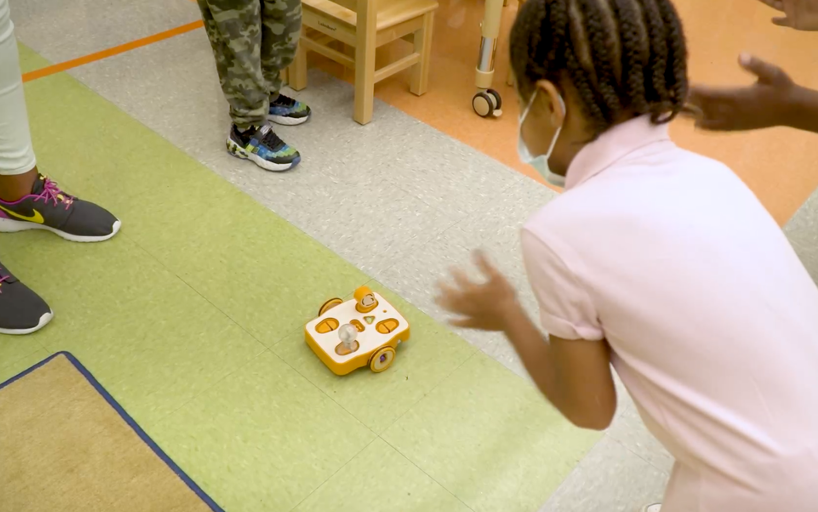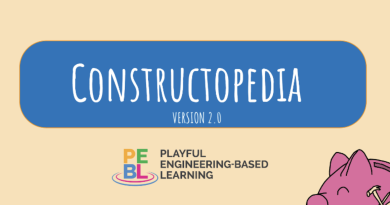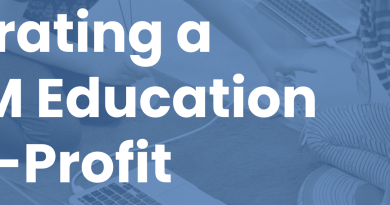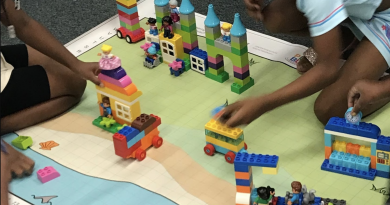DevTech Research Provides Insights into the Head Start Saturday STEAM Academy Program for Preschoolers
During the 2021-2022 school year, the Urban League of Metropolitan Saint Louis Head Start initiated Saturday STEAM Academy. This program, funded by The LEGO Foundation Playful Engineering-Based Learning (PEBL) grant was designed for 3-, 4-, and 5-year-old children to explore Science, Technology, Engineering, Arts, and Mathematics (STEAM) concepts. The teachers for Saturday STEAM Academy, who were regular Head Start classroom teachers, collaborated with the DevTech Research Group led by Dr. Marina Bers. Together, they aimed to introduce young children to coding, engineering, and robotics using the screen-free KIBO robotics kit.
In the Saturday STEAM Academy, children had hands-on experiences with the KIBO robot, utilizing its wooden blocks and barcode programming language to control motors, lights, and sensors. This approach allowed them to bring their favorite stories and dances to life. The KIBO robot, extensively tested with thousands of children and hundreds of teachers and families worldwide, has proven effective in helping 4-7-year-olds explore robotics in a playful and developmentally appropriate manner.
The program utilized the evidence-based Coding as Another Language curriculum, crafted by DevTech researchers. This curriculum enabled children to delve into coding using literacy and storytelling skills, mathematical concepts, the engineering design process, and elements of drama, dance, and the performing arts.
Throughout the pilot year, Saturday STEAM Academy teachers engaged in professional development led by DevTech to understand how to implement lessons from the KIBO curriculum. They led various activities during Saturday sessions, shared their insights in collaborative Zoom meetings, and contributed to the collection of crucial pre- and post-assessments to track changes in computational and robotic learning among students.
The Saturday STEAM Academy sessions proved rewarding and useful for teachers to grow their practice implementing playful engineering-based learning. In addition, children showed engagement and enjoyment throughout the sessions, and demonstrated an eagerness to pursue STEAM learning throughout the 6-week sessions.
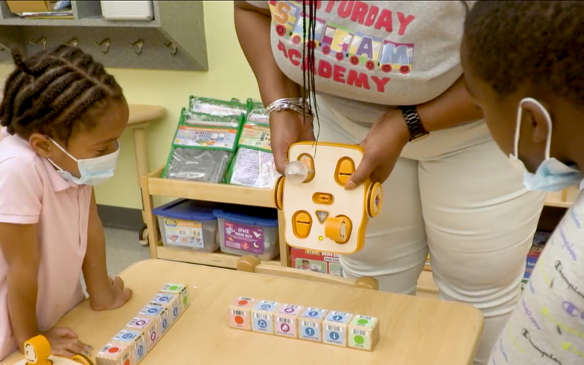
The results from children’s pre/post Coding Stages Assessments revealed a surprising trend of all children showing improved robotic and coding awareness, not just children who engaged in the Saturday STEAM Academy sessions. One optimistic interpretation of this finding, that may be supported by teacher self-reports, is that the professional development among all Head Start teachers and hands-on practice among Saturday STEAM Academy teachers influenced regular daily classroom practice.
Teachers reported that their mindsets about engineering, coding, and technology in preschool had shifted as a result of engaging in this pilot year. It is possible that the effects of the research collaboration with DevTech were farther-reaching than the assessment measures could capture.
Academic publications and conference presentations:
- Bers, M., A. Strawhacker and A. Sullivan (2022), “The state of the field of computational thinking in early childhood education”, OECD Education Working Papers, No. 274, OECD Publishing, Paris.
- Strawhacker, A., Govind, M., & Bers, M. U., (2022, April 21-26). Understanding the Experiences of Early Childhood Professionals’ Navigation of Remote Teaching and Learning With Technology [Paper Presentation]. American Educational Research Association (AERA) Annual Meeting. San Diego, CA.
- Strawhacker, A., Relkin, E., Bers, M.U. (2022). Designing an Adaptive Assessment for Preschool Children’s Robotics Knowledge. Educational Designer, 4(15). ISSN 1759-1325.
- Govind, M. & Bers, M. (2021). Assessing Robotics Skills in Early Childhood: Development and Testing of a Tool for Evaluating Children’s Projects. Journal of Research in STEM Education, 7(1).
Curriculum:
Coding As Another Language for KIBO (CAL – KIBO) is a Pre-K to 2nd grade curriculum that introduces powerful ideas from computer science, in conversation with literacy in a playful, structured, and developmentally appropriate way. The CAL – KIBO curriculum for pre-kindergarten has 30 half-hour lessons, designed for a total of 15 hours, but can be adapted to any learning setting.
The free CAL- KIBO curriculum and its associated teaching materials can be found here:
Assessments:
DevTech created a website with assessments for evaluating children’s development of computational thinking and robotics skills. Educators and researchers can receive free training and certification, and then have access to those resources. Those can be found on the DevTech website.
Webinars:
DevTech created a series of webinars to inform educators about best practices with STEAM. Recordings of those webinars can be found on the DevTech website.

